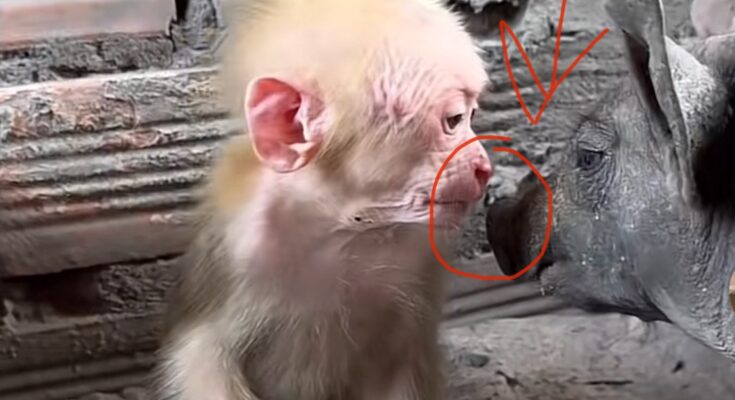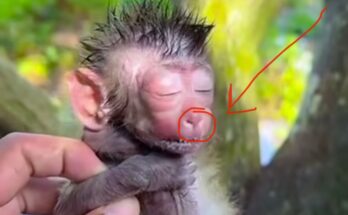Diarrhea in newborn monkeys is a significant health concern, especially in captive environments such as wildlife rehabilitation centers, research facilities, and zoos. Just like human infants, newborn primates have fragile digestive and immune systems, making them more vulnerable to infections, dietary imbalances, and environmental stressors. Understanding the primary causes of diarrhea is essential for ensuring proper care, early intervention, and long-term health. Below are the major factors that commonly lead to diarrhea in newborn monkeys.
1. Immature Digestive and Immune Systems
Newborn monkeys are born with underdeveloped digestive tracts and immune defenses. In the first weeks of life, their bodies are still learning to process nutrients and fight pathogens. Even minor irritations or small changes in diet can trigger loose stools. Additionally, the lack of fully developed gut flora—which helps stabilize digestion—can make a newborn monkey more susceptible to gastrointestinal upset.
2. Viral, Bacterial, and Parasitic Infections
Infections are one of the leading causes of diarrhea in infant monkeys.
-
Viral infections, such as rotavirus or adenovirus, can spread quickly among groups of monkeys and cause severe dehydration.
-
Bacterial infections like E. coli, Salmonella, and Shigella often arise from contaminated food, water, or unclean enclosures.
-
Parasitic issues, including Giardia and Cryptosporidium, are also common in environments where sanitation is difficult to maintain.
Because newborn monkeys have limited immunity, these infections can escalate rapidly, making early diagnosis critical.
3. Poor Nutrition or Sudden Dietary Changes
Proper nutrition is essential during the neonatal stage. When baby monkeys are not receiving adequate mother’s milk—or are fed inappropriate formula substitutes—their digestive system may become strained.
Common nutritional causes include:
-
Feeding cow’s milk or formula not designed for primates
-
Overfeeding or underfeeding
-
Rapid switches between formula types
-
Introducing solid foods too early
An improper diet can disturb the natural balance of gut bacteria, leading to diarrhea and poor nutrient absorption.
4. Stress and Environmental Factors
Stress plays a major role in gastrointestinal health, especially in primates. Newborn monkeys may experience stress due to:
-
Separation from the mother
-
Overhandling
-
Loud or crowded environments
-
Sudden changes in temperature
-
Transport or relocation
Stress triggers hormonal responses that can speed up bowel movements and upset the stomach, resulting in diarrhea.
5. Unhygienic Living Conditions
Dirty enclosures allow bacteria, viruses, and parasites to thrive. When newborn monkeys crawl, play, and explore their surroundings, they can easily ingest pathogens. Poor hygiene in feeding equipment—such as unsterilized bottles—also increases the risk of infection and digestive issues.
Conclusion
Diarrhea in newborn monkeys can arise from many causes, including infections, dietary issues, stress, and environmental factors. Because infant monkeys are highly vulnerable, caregivers must ensure proper nutrition, maintain strict hygiene, and monitor for early signs of illness. Timely veterinary care is essential, as dehydration and nutrient loss can quickly become life-threatening. By understanding these key factors, caregivers can create healthier, safer conditions for newborn monkeys to thrive.



